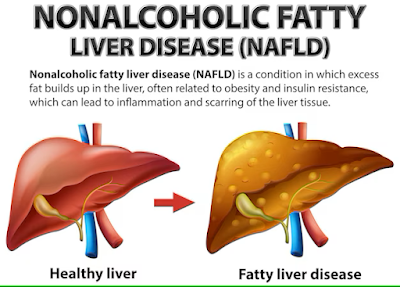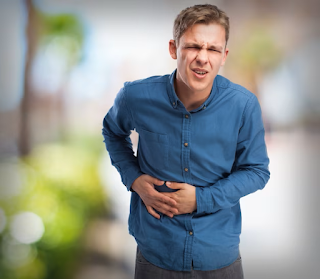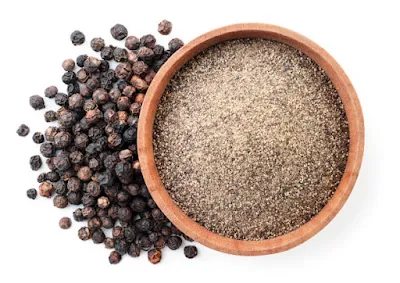You Can Not Live Without a Liver, So Take Good Care of Yours!
Introduction
Your life continuation depends on the availability and health of certain organs. One of these organs is the liver. The four other essential organs are the heart, the kidneys, the lungs and the brain. Except for skin, the liver is the largest organ of the body. The liver is the only organ that can regenerate. You may lose part of your liver but if conditions are conducive, you may have a complete liver in a matter of weeks.
So many aspects of our health and wellbeing depend on the liver. Everything we absorb into the blood stream after ingestion must pass through the liver first before it finds its way to body cells. This means our liver is the first line of defense against various toxins that enter the body through the mouth, the nose or by way of the skin. These toxins include those contained in food, drinks, medicine, cosmetics and environmental chemicals due air, soil and water pollution.
Maintaining a healthy and functioning liver is of paramount importance. At the end of this article, we will highlight various actions which a person can do to optimize their liver function. But before that we will learn a bit more about the liver, especially how it functions and the various diseases that can compromise its ability to function.
Functions
of the Liver
The liver is responsible for more than 500 functions in the body. Apart from filtering out toxins entering the blood stream from the gut, lungs or the skin, other few functions include:
- Storage of nutrients including vitamins and minerals
- Detoxification of various metabolic toxins
- Regulation of energy storage and distribution in the body
- Regulation of the performance of various hormones in the body
- Creation of protein molecules that are responsible for hormone transport in the body;
- Metabolization of testosterone and oestrogen;
- Metabolization of Dietary fat;
- Regulation of the production of various proteins in the body;
- Production of cholesterol; and
- Regulation blood sugar.
Protection
From Toxins
The primary function of the liver is to remove from the body both ingested and metabolic toxins. Without this organ the toxic load in the body would be too high and cause all sorts of health problems, or even death when a certain threshold is reached. Toxins which are continuously removed include:
- The remains of dead red blood cells (bilirubin) processed in the spleen;
- Ammonia produced following metabolism of proteins in the body;
- The remains of various chemicals including natural and pharmaceutical drugs; Alcohol; Various ingested toxins through food, drink, air and skin; Toxins produced in the body by various bacteria, fungi, and other micro-organisms that reside in our bodies.
Liver
Diseases
Liver diseases accounts for two million deaths annually and is responsible for 4% of all deaths. Various health issues can impair the performance of the liver. The most common issues are:
- Toxic overload in the body;
- Encounter with a highly potent poison (s); and
- Infections
These issues, singularly or together can cause various liver ailments.
Symptoms that your liver may be sick include:
- Pain in the upper right abdomen;
- Bloating;
- Fatty Liver;
- Pale or Clay-Coloured Stool;
- Dark Coloured Stool;
- Greasy or Floating Stool;
- Blood in the Stool;
- Severe fatigue that may not be relieved by rest;
- Yellowing of skin and the whites of the eyes (Jaundice);
- Lack of appetite and Weight loss;
- Persistent nausea and vomiting;
- Itchy skin;
- Dark urine;
- Easy bruising and bleeding; and
- Mental confusion or cognitive changes
The
Absence of Symptoms
Sometimes there may be no symptoms and yet the liver is still ailing.
The most accurate way of telling the state of your liver is to test the level
of your liver enzymes in the blood. The presence of these liver enzymes is an
indication of liver damage. The higher the level of these enzymes the greater
the damage.
Factors
that Can Cause Liver Damage
Liver damage can occur due to several
different factors. These include:
- Alcohol: Excessive alcohol consumption is a leading cause of liver damage;
- Viral Infections: Certain viruses can infect the liver and cause inflammation and damage. The most common liver infections are viral hepatitis, including hepatitis A, B, C, D, and E;
- Non-Alcoholic Fatty Liver Disease (NAFLD): NAFLD is a condition characterized by the accumulation of fat in the liver cells;
- Medications and Toxins: Certain medications, including long-term and high-dose use of acetaminophen (paracetamol), can cause liver damage if not used properly;
- Autoimmune Diseases: Autoimmune diseases occur when the immune system mistakenly attacks healthy tissues, including the liver. Autoimmune hepatitis is one such condition that can cause chronic inflammation and liver damage;
- Genetic and Inherited Disorders: Certain genetic and inherited disorders can affect the liver and lead to liver damage; and
- Other Factors: Other factors that can
contribute to liver damage include certain cancers (e.g., liver cancer),
obesity, poor nutrition, exposure to certain chemicals and toxins, long-term
use of certain medications, and some specific medical conditions.
What You
Can Do to Help Your Liver to Stay Healthy
Some studies have shown that certain herbs
and certain plant based natural products have beneficial effects on the liver.
These include:
- Turmeric;
- Garlic;
- Coconut oil;
- Green tea;
- Moringa;
- Cinnamon;
- Ginger;
- Cloves;
- Black seeds
To optimize the absorbability of its most
active compound (curcumin), turmeric powder is mixed with a little black pepper
powder.
Conclusion
In conclusion, the liver is a vital organ
responsible for numerous functions in the body, including detoxification,
nutrient storage, and hormone regulation. It plays a crucial role in protecting
the body from toxins and maintaining overall health. However, various factors
can lead to liver damage and diseases, such as toxic overload, infections,
alcohol, medications, and autoimmune conditions.
Taking proactive steps to support liver
health is essential. While more research is needed, certain natural remedies
and herbs, such as turmeric, garlic, coconut oil, green tea, moringa, cinnamon,
ginger, cloves, and black seeds, have shown potential beneficial effects on
liver health. Incorporating these natural products into a balanced and healthy
lifestyle may help optimize liver function

















Comments
Post a Comment